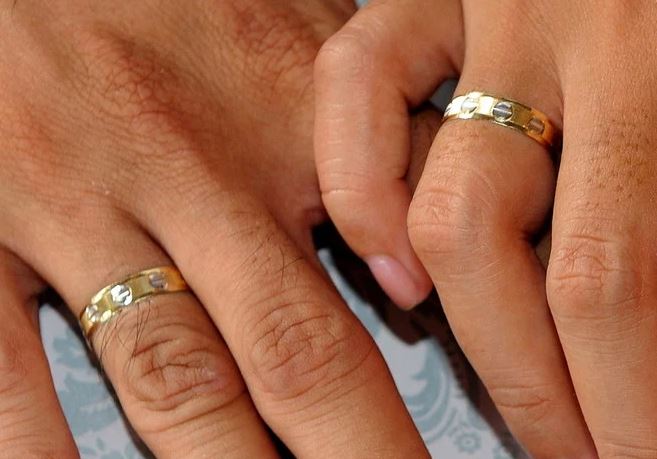BEIRUT: As globalization transforms most aspects of modern life, the nature of family and family life is no longer what it was even 10 years ago. The usual stresses and strains on marriage have been compounded by the growing trend of people moving away from their families and countries of origin in search of a livelihood.
That the Arab world is not insulated from these socio-economic changes is evident from the rise in the number of couples choosing to separate in several Middle Eastern and North African countries.
A recent study by the Egyptian Cabinet’s Information and Decision Support Center found that Kuwait, Egypt, Jordan and Qatar are the Arab countries with the highest divorce rates.
In Kuwait, 48 percent of all marriages end in divorce, 40 percent in Egypt, 37.2 percent in Jordan, 37 percent in Qatar, and 34 percent in both the UAE and Lebanon.
“On some days, we have up to 16 divorce cases in this court alone,” Sheikh Wassim Yousef Al-Falah, a Shariah judge at Beirut’s religious court, told Arab News.
“The increasing divorce rate is a phenomenon that we have not seen before, although we do not favor divorce and focus on reconciliation.”
Experts believe this trend has been driven by a combination of economic pressures, evolving societal norms, legal reforms and, above all, the changing role of women.
“Women no longer feel that they need men,” said Al-Falah. “Many wives have stood before my court, rejecting any settlement with their men because they feel that they are capable of being independent and do not want men to control their lives.”
Through much of history, especially among the more conservative cultures of the Arab world, a woman’s place was long considered to be in the home, handling the needs of the family, while male relatives studied and went to work.
Now, as Arab nations modernize their economies and reform their legal systems, women are becoming more independent, increasingly pursuing higher education, progressing in their careers, and choosing to marry and have children later in life.
As a result, Arab women have developed a keener awareness of their civil rights, personal ambitions and self-respect. They increasingly refuse to tolerate domestic violence and are capable of supporting themselves financially.
“In the past, women used to hesitate before taking the decision to ask for a divorce, keeping in mind that this option is not available within all of Lebanon’s sects and is hard to reach within some sects,” Manal Nahas, a researcher whose postgraduate diploma focused on the issue of divorce in Lebanon, told Arab News.
“However, the current statistics compiled by the religious courts that handle the personal status of Lebanese citizens and foreigners residing in Lebanon reflect an increase in divorce requests, especially those submitted by women.”
The rise is viewed as a byproduct of wider changes in social attitudes.
“This generation of women look at divorce differently,” said Nahas. “Women are no longer obliged to tolerate abuse like their mothers and grandmothers used to.
“Today’s women are educated, they work and they occupy high positions in their areas of work. There is now equality between men and women. The average age of marriage for women in the decades after the war was 24 years old, and today it has risen to 32 years as a result of social progressiveness, economic conditions and women’s participation in the labor market.”
Nahas added: “In addition, women are cherished in their parent’s home before they get married. Therefore, getting a divorce is easier for them than continuing to live in an unbearable marriage. Divorce in Lebanese society is no longer considered a stigma.
“Most parents now re-embrace their divorced daughter instead of rejecting her. There has been a societal change. Almost everyone experiences divorce, as this is no longer considered a hard decision to take.”
In Lebanon, where a large segment of the population has moved abroad to find jobs with better salaries, the difficulty of maintaining a long-distance relationships also appears to play a part in marriage breakdown.
“My husband has been working in Africa for many years and I live with my children in Lebanon,” Neemat, 34, told Arab News at the religious court in Beirut, where she was seeking a divorce.
“We decided to separate in a friendly way after our life together became unbearable. He will be covering the child support and has fully paid his dues to me through the deferred marital payment.”
Al-Falah said this kind of relationship breakdown is common.
“The most unsuccessful marriages are those in which the husband migrates abroad to work and the wife remains in Lebanon,” he said. “When the spouses meet up, they discover that they are unable to live with each other. Such marriages do not last in general.
“However, if this marriage produces children, we try to repair the relationship bet

